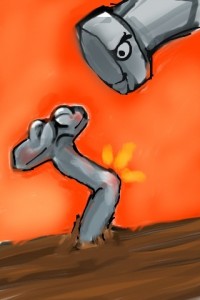Tag Archive: purpose
September 19, 2017
One of the questions that often comes up in our popular workshop, Facilitative Leadership for Social Change goes something like this,
“It’s great that I’m learning all of these practical leadership and facilitation skills, but what happens when I’m not the one leading or facilitating?”
How can we keep things rolling when we aren’t formally in charge and when formal leadership is perhaps not so skillful? My answer: There’s usually some opportunity to lead, ask good questions, and to facilitate from the chair! Read More
August 8, 2017
I am saddened to learn that Mila Baker passed away recently. While I did not know her personally, she was a mentor from a distance. A few years ago, I read her book about peer-to-peer leadership and found it both enlightening and validating as I continued my journey to uncover more about the promise of seeing and doing in networked ways.

Mila N. Baker
Mila Baker was a writer, teacher, philanthropist, cross-sector leader and artist. At the time of her passing, she served on the Board of Directors for the Berrett-Koehler Foundation, was a member of the adjunct faculty at Columbia University Teachers College, as well as a Principal Research Investigator at the Institute for Collaborative Workplaces, and Visiting Professor at Kuwait University. The following is a post I wrote after reading her book published in 2014.
I just finished reading Mila Baker’s Peer-to-Peer Leadership: Why the Network is the Leader, which adds to the growing case for more widespread network thinking, foregrounding of human relationships, and shifting traditional conceptions (and myths) of leadership in business and beyond. Baker’s book echoes the spirits of Margaret Wheatley, Clay Shirky, Carol Sanford, Nilofer Merchant, Kevin Kelly, and Harold Jarche, and I appreciate how she couches her writing in the evolving leadership and organizational development literature and thinking.
Read More
April 4, 2017
“You’ve got to keep asserting the complexity and the originality of life, and the multiplicity of it, and the facets of it.”
– Toni Morrison

Once again, I’ve been re-reading Niels Pfleaging’s short book Organize for Complexity (and eager for the release of the English version of Complexitools) amidst the growing demand we are hearing at IISC from people who want to liberate their organizations and themselves to be able to intelligently respond to change and to come back to life! Here’s the gist – as things shift more, and more rapidly, some people’s inclination may be to try to exert greater control or dig in to what is familiar, but does not work. The more one does so, the worse things can get. As Pfleaging writes, we see a “high price for the illusion of control.” Within organizations this takes the form of various gaps – social, functional, and temporal – that make them increasingly irrelevant, ineffective and irresponsible.
Responding to complexity requires (to borrow a phrase from Eugene Eric Kim) new muscles and mindsets.
Read More
March 4, 2015
“You’ve got to keep asserting the complexity and the originality of life, and the multiplicity of it, and the facets of it.”
– Toni Morrison

I’ve been re-reading Niels Pfleaging’s short book Organize for Complexity and appreciating how it succinctly captures the current challenges for many groups and organizations trying to navigate complexity while clinging to old tools and beliefs. This can also be the nature of social change work amidst the significant shifts we are seeing. Here’s the trick – as things shift more, and more rapidly, people’s natural inclination may be to try to exert greater control or dig in to what is familiar but does not work. The more one does so, the worse things can get. As Pfleaging writes, we see a “high price for the illusion of control.” Within organizations this takes the form of various gaps – social, functional, and temporal – that make them increasingly irrelevant and ineffective. Responding to complexity requires (to borrow a phrase from Eugene Kim) new muscles and mindsets.
If I could summarize my own reading of Pflaegings’s book, I would put it this way – the world we are living into requires more integrated ways of seeing and doing, and this is hard to do (if not impossible) if people maintain highly differentiated ways of organizing themselves. There is really a baseline call for self-awareness and mindfulness so that one is able to respond not by default or fear, but with perspective and intention, which connects to the idea of “strengthening the network within” at the individual level. And it is important to reach out and connect this self-awareness to others . . .
“Problem-solving in a life-less system is about instruction. Problem-solving in a living system is about communication.”
-Niels Pflaeging
Read More
March 5, 2014

I just finished reading Mila Baker’s Peer-to-Peer Leadership: Why the Network is the Leader, which adds to the growing case for more widespread network thinking, foregrounding of human relationships, and shifting traditional conceptions (and myths) of leadership in business and beyond. Much of what Baker writes about has been expressed in the writings of others, including Clay Shirky, Carol Sanford, Nilofer Merchant, Kevin Kelly, and Harold Jarche, and I appreciate how she couches much of her writing in the evolving leadership and organizational development literature and thinking. Read More
August 23, 2013

The following is a letter by Akaya Windwood, President of the Rockwood Leadership Institute and member of the IISC Board of Directors. We hope you enjoy it as much as we did and don’t forget to join the conversation!
About three years ago, I noticed a stick growing in my neighborhood a few doors down from my house. It was right at the edge of the curb, angling out into the street. I didn’t pay too much attention to it.
Last summer I realized it was a fig tree. There were little bitty figs clinging to the branches. I was sure someone from the city would come by and cut it down. Clearly, it was a volunteer fig tree. No one in their right mind would have planted it so close to the street and at such an angle.
Read More
August 23, 2013

The following is a letter by Akaya Windwood, President of the Rockwood Leadership Institute and member of the IISC Board of Directors. We hope you enjoy it as much as we did and don’t forget to join the conversation!
About three years ago, I noticed a stick growing in my neighborhood a few doors down from my house. It was right at the edge of the curb, angling out into the street. I didn’t pay too much attention to it.
Last summer I realized it was a fig tree. There were little bitty figs clinging to the branches. I was sure someone from the city would come by and cut it down. Clearly, it was a volunteer fig tree. No one in their right mind would have planted it so close to the street and at such an angle.
Read More
June 20, 2013
Thanks to Harold Jarche for turning me on to this beta codex network presentation about seeing and designing organizations as networks. It captures much of the learning that has been coming out of our work at IISC with different kinds and scales of networks for social change. Below is a list of ten key points from the presentation: Read More
January 24, 2013

|Photo by Darrel Birkett|http://www.flickr.com/photos/darrelbirkett/6935043394/sizes/m/in/photostream|
I’ve been playing with different reflection questions lately to try and help various networks and multi-stakeholder collaborative change efforts put a clearer and more aligned frame around the kinds of systems (food, education, health, etc.) that would yield more equitable, sustainable, and enriching results. This is not to pretend that they can take control of the systems and command them to be different, but rather to create an image toward which they can nudge these systems via various leverage points. In one recent convening, I borrowed a page from critical systems heuristics, which asks us to identify and play with the existing systemic boundaries, including motivation, power, expertise and legitimacy. Read More
January 16, 2013

I was recently turned on to the work of Louise Diamond by the Plexus Institute. Diamond has been bringing insights from the dynamics of complex systems to peace building work for many years. Her efforts connect to a growing number of practitioners and thinkers who see the need to approach social change with an ecological and evolutionary mindset. In one of her papers, she extracts some of the “simple rules” that yield core practices for working in this way. Here I have adapted and adjusted some of them in application to network building for food systems change. Read More
August 8, 2012

|Photo by Siew Yi Liang|http://www.flickr.com/photos/sonictk/361505937|
One of the comments that often comes up in our popular workshop, Facilitative Leadership goes something like this, “It’s great that I’m learning all of these practical leadership and facilitation skills, but what happens when I’m not the one leading or facilitating?” How can we keep things rolling when we aren’t formally in charge and when formal leadership is not so skillful. My answer today: there’s always an opportunity to lead, ask good questions, facilitate from the chair! Read More
July 28, 2011
“When the only tool you have is a hammer,
every problem begins to resemble a nail.”
-Maslow’s Maxim

|Image by petesimon|http://www.flickr.com/photos/petesimon/4289748362|
Someone once said, “Advocates can be hell to work with, but they make good ancestors.” Agreed. And . . . Read More










